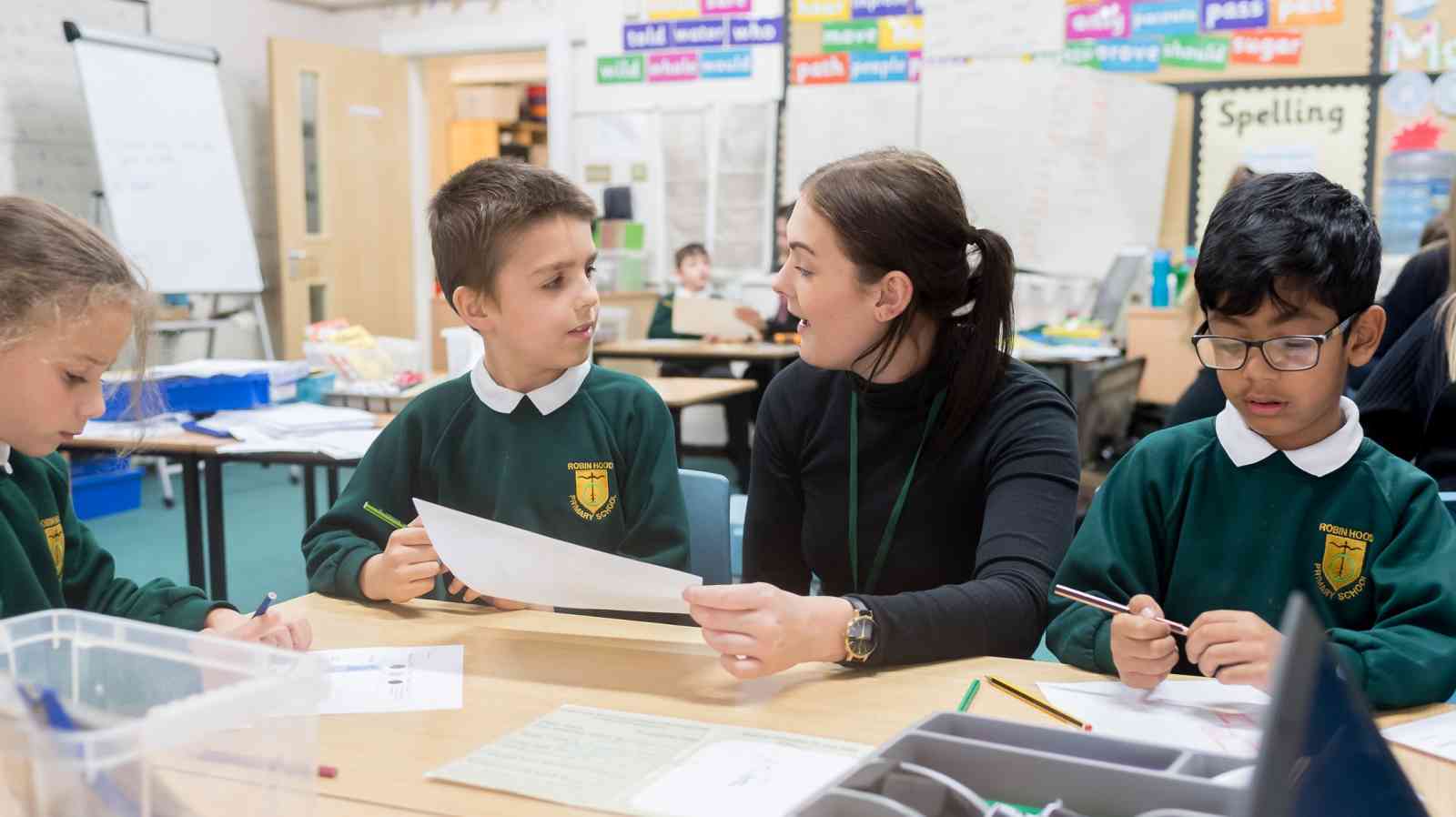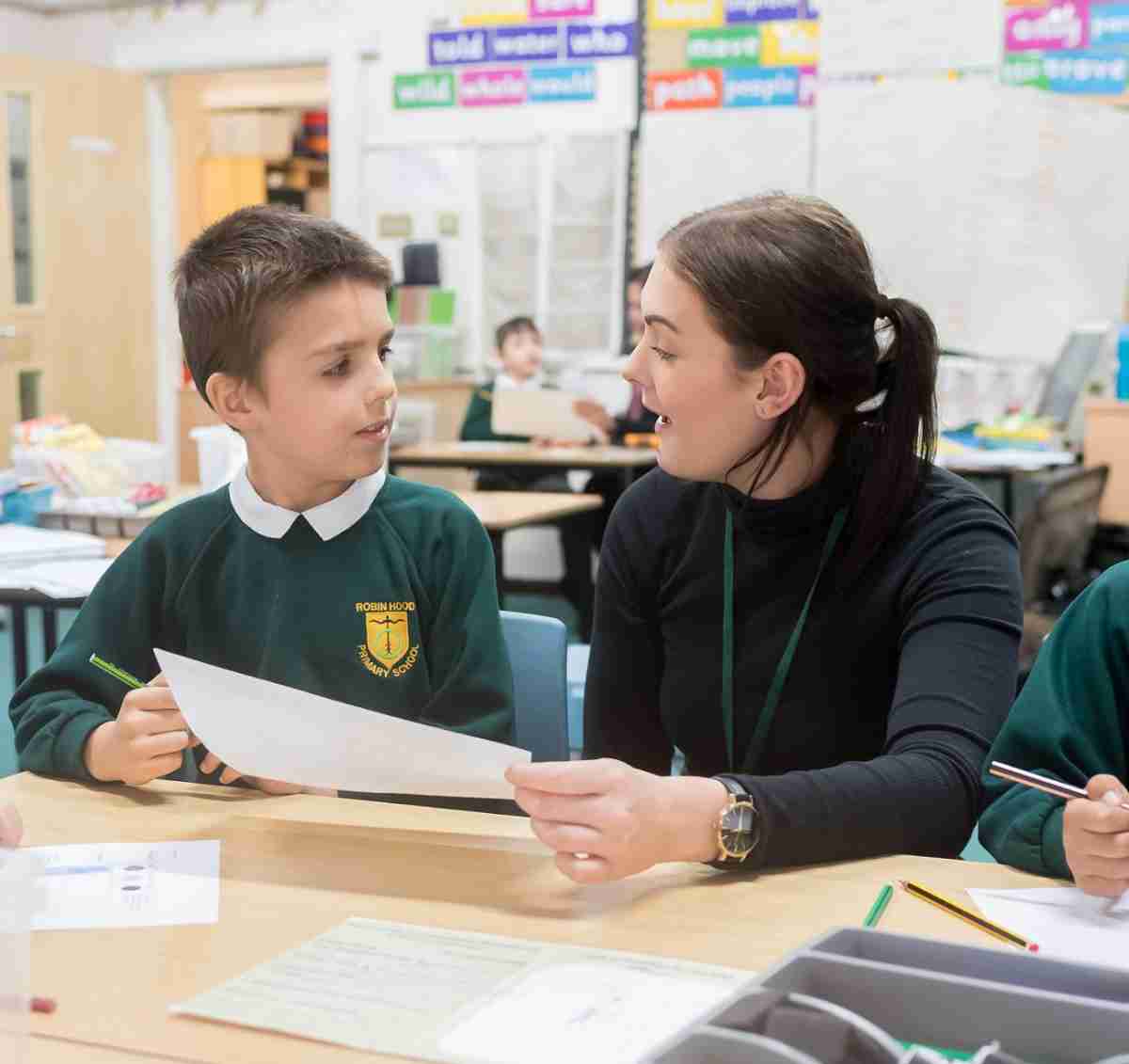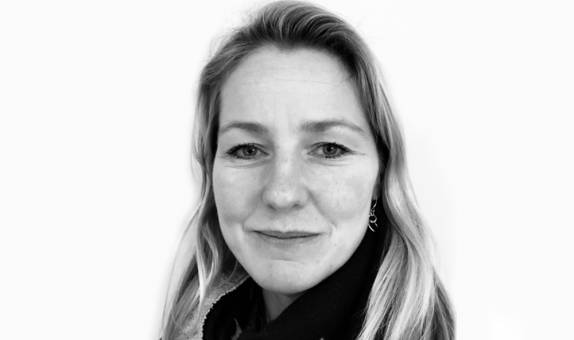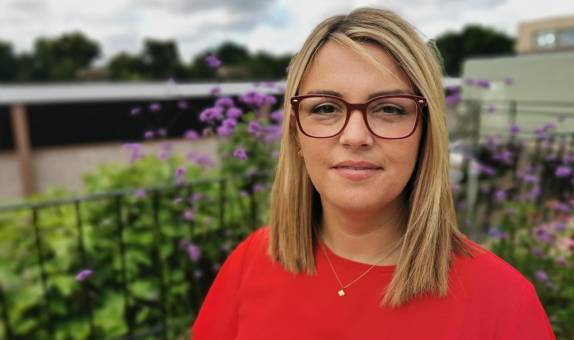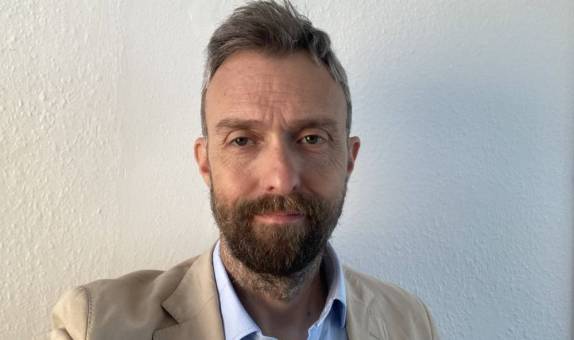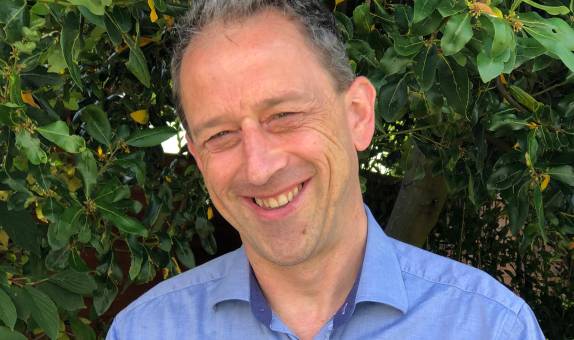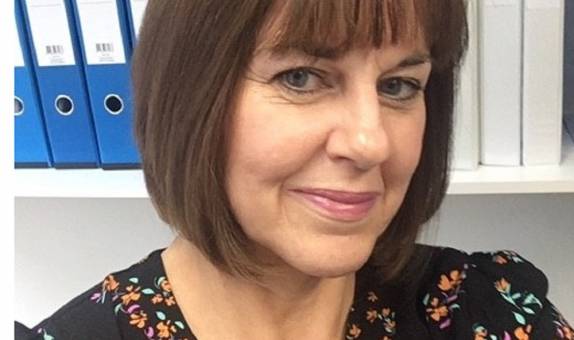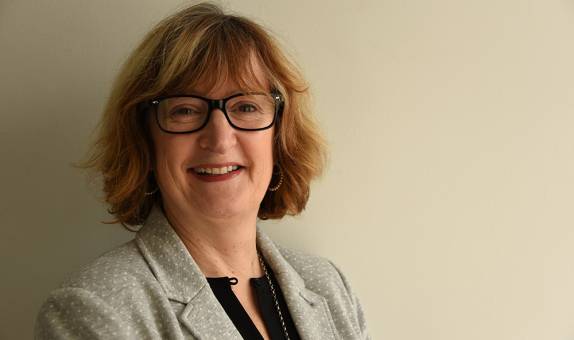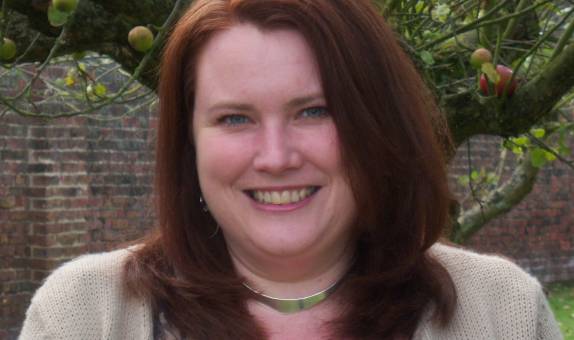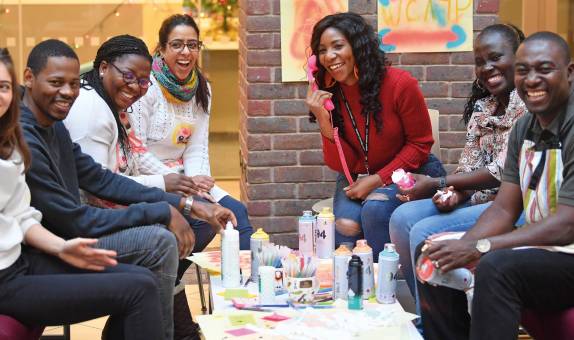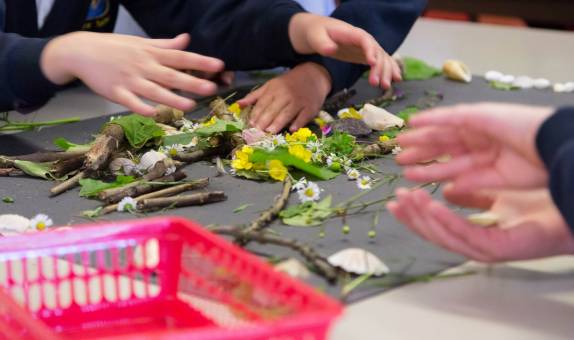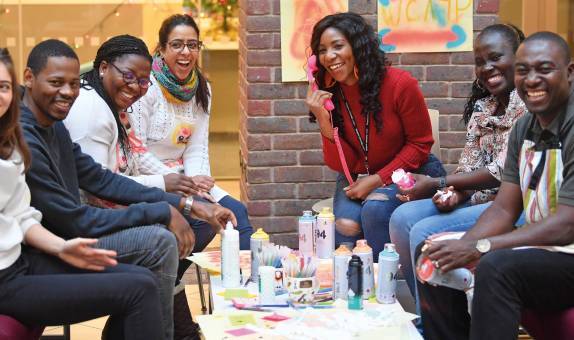Primary Education (QTS) BA (Hons)

Teaching Excellence Framework (TEF) Gold award
Our commitment to high quality teaching has been recognised with a TEF Gold rating. The University has received an overall rating of Gold, as well as securing a Gold award in the framework's two new student experience and student outcomes categories.
Why choose this course?
Few careers are as rewarding, or as important, as teaching. Choosing to study at Kingston will give your career the best possible start.
This course has been designed to reflect four key areas of a teacher's professional responsibilities – professional practice, core subject curriculum and pedagogy, child development and inclusive practice, and foundation subject curriculum and pedagogy.
You will study a wide range of topics including pedagogy (the art of teaching), theories of learning and child development, safeguarding and how to support pupils with special educational needs and disabilities (SEND). You will cover the core and foundation subjects of the National Curriculum, including English, mathematics, science, art and physical education.
Utilising different environments (inside and outside) is a feature of the course, as you will learn how sensory and physical experiences can generate opportunities for enhancing learning for pupils. You will also explore ways to use digital technology to engage your pupils and assist with teaching, learning and assessment.
On this course, you'll spend at least 120 days in school, developing your teaching skills with support from expert colleagues and you'll gain Qualified Teacher Status. Your professional practice will give you experience of teaching children from different backgrounds in a variety of settings. In addition to school placements, you will have an enhancement experience working with children in a different education context, at the end of Year 1 and Year 2. These are known as ‘Beyond the Classroom' experiences. You will spend at least 10 days working in a chosen area of interest such as museum education, arts education, theatre education, sports and/or recreational activities.
| Attendance | UCAS code | Year of entry |
|---|---|---|
| 3 years full time | XQD5 | 2024 (Clearing) 2025 |
Please note: Teaching on this course may take place on more than one KU campus.
| Main Location | Kingston Hill |
Reasons to choose Kingston University
- Kingston has been training teachers for over 100 years.
- We have more than 200 partnership schools to ensure you have excellent support and a diverse experience.
- In addition to your placements in schools, you will arrange your own bespoke "Beyond the Classroom" experience in an alternative learning environment such as museum education, arts education, theatre education, sports or recreational activities.
What you will study
You will experience a range and variety of teaching and learning strategies that are demonstrated by expert colleagues within the programme and that mirror approaches within primary teaching and learning that they will encounter in professional practice.
Your induction will include specific activities that relate to the preparation required before you go into schools and covers aspects of practice such as professionalism, safeguarding, social media for teachers and an introduction to behaviour management. These are all framed by reference to the Initial Teacher Training and Early Career Framework (DfE, 2024) and Teachers' Standards (DfE, 2021), so you will understand core professional expectations.
The programme provides a strong emphasis on the core subject areas of mathematics, science and English, including the teaching of early reading, systematic synthetic phonics and grammar. This closely mirrors practice in primary schools, together with a more holistic approach to the curriculum, focusing on innovative and creative approaches to teaching and learning with emphasis on cross-curricular links with the National Curriculum foundation subjects such as physical education, history, geography and art.
You will also experience and develop your knowledge of the appropriate selection and use of digital technologies to promote pupils' interests and engagement within and beyond the curriculum.
Our carefully sequenced and ambitious curriculum progressively builds on your knowledge, understanding and key skills. The course is designed to ensure that all teaching and learning activities support and enhance student development in the five core areas of the Initial Teacher Training and Early Career Framework (DfE, 2024), to enable trainees to make good progress and meet the Teachers' Standards at the end of their training.
Year 1
Year 2
Year 3
Core modules
Core Curriculum and Pedagogy 1
30 credits
This module provides you with the opportunity to begin to explore and define theories of learning that influence and/or underpin different pedagogical approaches in education.
You will be introduced to the Early Years Foundation Stage (EYFS) (2021) framework and explore the principles of effective learning and development in young children that provide the foundations for learning and progression for all pupils. This learning is contextualised through visits to nurseries and reception classes, where you will observe expert colleagues modelling effective practice in planning and assessment and have the opportunity to discover what makes particular pedagogical approaches successful for different pupils. You will begin to recognise how high-quality teaching across different ages and phases has long-term positive effects on pupils' life chances, particularly for children from disadvantaged backgrounds.
The module also introduces you to the core subjects of English, mathematics and science in the National Curriculum (NC), so that you can begin to examine and use the frameworks that influence curriculum design, pedagogical approaches, key skills and concepts that underpin teaching and learning in early years and primary contexts. You will spend some time developing your own subject knowledge in the core curriculum areas, learning from expert colleagues who will model different pedagogical approaches that you are likely to observe in professional practice.
Child Development and Inclusive Practice 1
30 credits
This module is designed to introduce you to child development. It begins by exploring patterns of growth and development from birth to adulthood. You are introduced to the physical, cognitive, language, emotional, social and moral development of children, and are encouraged to appreciate the uniqueness of every child and to have an awareness of difficulties and barriers children may face, as they grow, develop and learn.
The module introduces your responsibilities as a teacher in terms of understanding how your expectations can affect pupil outcomes and the importance of developing a culture of mutual trust and respect to ensure that you are able to work effectively with pupils, their families and other professionals to adapt teaching and address diversity, so that all children reach their potential.
Foundation Curriculum and Pedagogy 1
30 credits
This module introduces you to the notion of curriculum. It explores different interpretations including the planned curriculum, the hidden curriculum and the extra curriculum that pupils experience in primary schools. The module explores the concept of curriculum in the context of historical, social and political influences. It also introduces you to foundation subject specific knowledge in the National Curriculum and how the present curricula in different subject areas have been influenced and impacted upon over time.
You are introduced to different foundation subjects through immersion in planned learning activities to ensure that your own foundation subject knowledge is developed through effective pedagogical practices modelled by expert teachers. This includes having experiences of learning new concepts related to prior knowledge and examining what is meant by the process of learning.
Professional Practice 1
30 credits
This module introduces you to the foundation phase of the professional practice-based element of the Initial Teacher Training (ITT) programme, involving placement in a primary school, across the academic year. Initially, you will be supported in exploring some aspects of professional practice, in preparation for going into a school. These include expected professional behaviours, codes of conduct, safeguarding, child protection, classroom management and behaviour management. As you begin to gain experience in the primary school context, you will revisit these aspects and begin to evaluate your effectiveness within practice, understanding that you act as a key role model for pupils, that you must take responsibility for their learning and that you have the ability to affect and improve their well-being, motivation and behaviour.
You will be expected to undertake a series of tasks under the guidance of expert colleagues, to foster the academic and professional development of your practice, demonstrating your knowledge and understanding of how pupils learn. You will begin to engage with planning and assessment and you will also collect information on a small number of pupils, following their learning and development in close detail throughout your placement.
As well as a school-based placement, you will also have the opportunity to gain some experience of working as a volunteer with children in a different educational context, such as museum education, art gallery education or recreational sports and activities (subject to appropriate university safeguarding checks). This enhancement experience, called ‘Beyond the Classroom', will take place towards the end of the academic year and will culminate in a celebration of your learning (and the learning of your peers), through the presentation of a small exhibition, with invited guests.
Core modules
Core Curriculum and Pedagogy 2
30 credits
This module critically explores aspects of the curriculum and pedagogical knowledge related to the primary core subjects of English, mathematics and science. You are given opportunities to review and develop your own core subject knowledge as well as examine and practise pedagogical approaches to ensure that you can motivate and teach pupils effectively and they can make progress in their learning with confidence.
Tutors on this module will model carefully sequenced learning sessions so that you experience and learn how to link new knowledge to existing knowledge. Connections between taught sessions will be made so that you will have personal insights into how knowledge and skills can be transferrable and applied in different contexts. The module enables you to focus on and discuss how pupils learn and explores the concepts of working-memory and long-term memory. Planning and assessments are further developed to ensure that you are able to respect difference and meet the needs of all pupils, through well-structured lessons.
Child Development and Inclusive Practice 2
30 credits
This module addresses the importance of using knowledge of child development theory and patterns of growth and development to make informed choices about learning and teaching approaches, including the pupil's voice and with an emphasis on effective inclusion.
You will learn about relevant legislation and statutory guidance, and examine how to recognise indicators that might suggest a pupil has particular and specific learning needs and how to address these in practice.
You will also explore how to work effectively with other adults in the classroom, other professionals and experts in the wider field to ensure that targeted support and interventions enable all pupils to make progress. This module relates specifically to the Professional Practice 2 module as you will design and develop a resource to support a pupil experiencing literacy difficulties in practice.
Foundation Curriculum and Pedagogy 2
30 credits
This module explores a broader range of international subject and pedagogical approaches in learning and teaching, giving you an opportunity to compare and contrast these with the English education system.
During the module you will critically explore the influences of international systems, approaches and resources that impact upon foundation subject knowledge and effective pedagogy and practice in national and local contexts.
You are provided with opportunities to consider factors that contribute to international and intercultural dimensions of education as you continue to explore and critically review subject knowledge. As part of the module, you will engage in further developing your specific subject knowledge and are provided with opportunities to try out different pedagogical approaches and techniques through micro teaching facilitation. You will further develop an appreciation for how your attitude and approach to subjects can influence the attitudes, values and behaviours of pupils.
Professional Practice 2
30 credits
This module provides you with the opportunity to build on the foundation phase practice-based elements of the ITT programme developed in Professional Practice 1 and involves a professional practice placement in a different school and age range to that experienced previously. The module will enable you to develop your existing knowledge and key practice skills. You will continue to benefit and learn from the experience of expert colleagues as you apply developing knowledge and understanding in the classroom, with reference to the Core Content Framework (2019).
With expert input, you will continue to be encouraged to take greater opportunities to practise, receive feedback and develop your pedagogical skills in the primary school context, understanding that you are a role model who can influence the attitudes, values and behaviours of pupils and that as a teacher you must take responsibility for pupils' learning. You will begin the module by revisiting key responsibilities of teachers in areas such as safeguarding and child protection to ensure that your knowledge is current.
Core modules
Core Curriculum and Pedagogy 3
30 credits
This module explores a range of contemporary issues that impact upon core subject knowledge, pedagogy and practice in the context of primary education. As you further develop your knowledge you will critically examine the influence of research on the teaching of English, mathematics and science within schools, critically exploring issues such as financial education, climate change and sustainability.
You will investigate contemporary education policies in the core subjects and how they may be shaped by social trends and political discourse. You will be encouraged to question and examine your own developing professional position within the issues explored and how this may affect changes in the core subject curriculum, as delivered in local contexts. As part of this module, you will explore how to make changes in professional practice working with expert colleagues, peers, pupils and other stakeholders.
You will undertake and lead a small-scale Action Research project in your placement, identifying an area for development, implementing the change and critically evaluating the impact in terms of improvements in learning.
Child Development and Inclusive Practice 3
30 credits
This module is designed to enable you to identify where pupils need specific interventions and how to work effectively with others to ensure a consistency of approach. This includes the use of formative assessment as well as adaptive and assisted technologies. The module also explores the specific needs of different communities of learners and how potential barriers to learning might be addressed in practice.
The emphasis in this module is on effective collaborative working with parents/carers, communities, colleagues, the Special Educational Needs Coordinator (SENCo) and other professionals. You explore the notion of interprofessional working and critically examine the roles of other professionals and relevant agencies in providing support and services for pupils and their families. You are provided with the opportunity to visit specialist provision for pupils and to hear from researchers in the field, enhancing your knowledge of inclusive practice as a continuum of education and a right of all children.
Learning from expert colleagues in the field enables you to gain insights into the complexities of pupils' needs and provision to support progress in growth, development and learning. You will critically examine the role of teachers in ensuring high expectations of all learners through an effective inclusive learning environment.
Foundation Curriculum and Pedagogy 3
30 credits
This module is designed to develop an in-depth and critical understanding of learning theories, curriculum design and effective pedagogy with a focus on the use of cross curricular learning opportunities in, and beyond, the primary classroom. You will critically explore different and varied pedagogical approaches in different and varied learning environments. You will critically examine possibilities to enable pupils to transfer what has been learnt in one subject into new or unfamiliar contexts.
As part of developing this practice you will examine the purpose of effective assessments in informing cross curricular planning and in the decisions you make, such as reviewing data trends over time that indicate a need for a targeted approach in an aspect of learning. Built into the module are visits to local areas, buildings and/or places of interest that you will critically explore and use as the stimulus for cross curricular learning. You will investigate possibilities of arranging visits for pupils and examine detailed preparation such as adhering to health and safety legislation, guidance and risk assessments.
Professional Practice 3
30 credits
This module will provide you with the opportunity to enhance and refine your professional practice as a trainee teacher in preparation for your final assessment against the Teachers' Standards (DfE 2021) to be recommended for Qualified Teacher Status (QTS). The focus of this module is an extended professional placement in a primary school, where you will be able to demonstrate effective pedagogy as you apply your learning from expert colleagues in the classroom context.
You will take on additional opportunities to practise independently, demonstrating effective teaching and learning through pedagogical approaches relevant to the subjects and age range being taught. You will begin the module by working on specific targets set in the Professional Practice 2 module and there will be a strong focus on ensuring you have experienced the full breadth of the curriculum throughout your school-based experience with a particular focus on ensuring you are proficient in teaching phonics and early reading. You will be provided with a range of opportunities throughout the professional practice placement to foster your academic and professional development, gradually taking on increased responsibilities and up to 80% of whole-class teaching and learning, with guidance from expert colleagues.
You will be supported in implementing a range of assessment strategies, focusing on whole class and individual assessments, culminating in generating a number and range of individual end of year reports. You will demonstrate your ability to communicate effectively, orally, in writing and digitally within a professional context.
In this final professional placement, you will undertake a small action research project related to your own professional development. This practice-based module is designed to help you transition to an emerging professional into the Early Career Framework (ECF) and beyond. You will set targets from the ECF, establishing a clear starting point for your first post as an Early Career Teacher (ECT).
Future Skills
Knowledge to give you the edge
Embedded within every course curriculum and throughout the whole Kingston experience, Future Skills will play a role in shaping you to become a future-proof graduate, providing you with the skills most valued by employers such as problem-solving, digital competency, and adaptability.
As you progress through your degree, you'll learn to navigate, explore and apply these graduate skills, learning to demonstrate and articulate to employers how future skills give you the edge.
At Kingston University, we're not just keeping up with change, we're creating it.

What our students say
Entry requirements
If you would like to join us through Clearing 2024, please call our Clearing line on 0800 0483 334 (or +44 020 8328 1149 if you are calling from outside the UK) and speak to our friendly and knowledgeable hotliners who will be able to provide information on available courses and will guide you through your options.
Please note the entry requirements listed below are for 2025 entry only.
Teaching and assessment
Your taught sessions will be a mix of seminars, lectures, practical workshops, field trips and work with pupils. Most of your sessions will be taught by university tutors but there may also be guest speakers, such as headteachers or subject leaders. We will encourage you to be active in your taught sessions so that you maximise your learning.
One of the many popular elements of this course is that there are no exams. Instead, each module has a final assessment point which must be passed, in order to progress to the next academic year. We have created a wide range of assessments, which reflect our diverse student community and provide opportunities for you to demonstrate your strengths and skills in different areas.
There are opportunities to work independently and collaboratively, reflective of the type of professional skills you will be required to implement when working in the classroom. Providing a range of assessment opportunities in the classroom is good practice and it is hoped that by engaging in a range of assessments, it will encourage you to be creative in your professional practice.
Professional placements
The course has been designed to allow trainees to spend 120 days in school over the three years, teaching pupils from across the primary age range. You will work alongside experienced teachers to develop your professional skills, knowledge and understanding. You will take increasing responsibility for children's learning over your three placements.
Your practice in different schools and settings means that you will experience a range of learning environments and work with children from different backgrounds.
In addition to school placements, you will independently arrange your own 'Beyond the Classroom' experience working with children in a different education context, at the end of Year 1 and Year 2. You will spend at least 10 days working in a chosen area of interest such as museum education, arts education, theatre education, sports and/or recreational activities. This will enable you to transfer your developing knowledge and understanding of effective pedagogy into alternative learning environments, working with specialists in the field.
This experience provides you with an enhanced understanding of wider practice in education and professional networks that you can draw on when working as qualified teachers in schools.
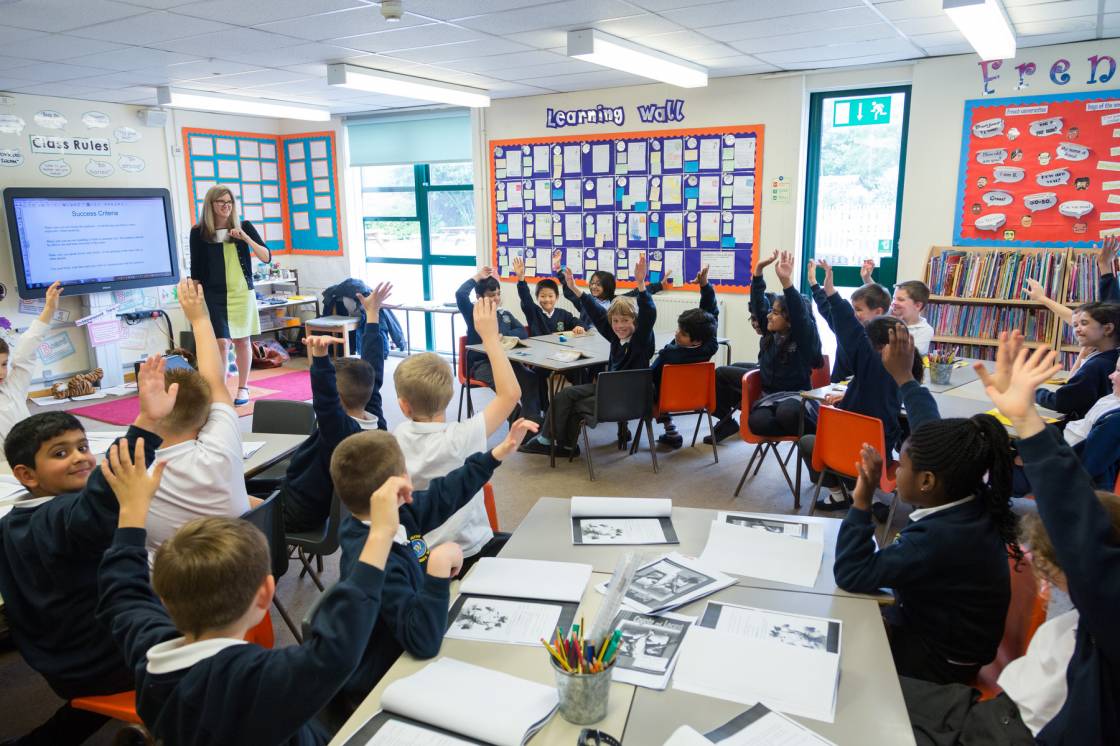
Facilities
While you are studying to become a teacher much of your time will be spent putting your skills into practice within a school environment. The rest of the time will be spent being taught by highly experienced professionals.
The Kingston Hill campus features an outdoor learning environment where trainee teachers lead curriculum-linked natural sciences activities with children. It includes a specially built 'cubby house', outdoor pond, beehive and nature trail. It offers students the opportunity to simulate teaching and learning with natural materials.
There are a number of teaching rooms set up to replicate actual classrooms. Each classroom is subject based - such as an art room, science lab, and each is equipped with all the relevant facilities you will need to practise your lessons before taking them into school.
Our library (the Nightingale Centre) has an excellent range of teaching resources to help you plan and teach your lessons, such as a range of children's topic books, music and nursery rhymes on CD, as well as artefacts and kits that can be used to illustrate historical periods, different religions, science, maths and music.
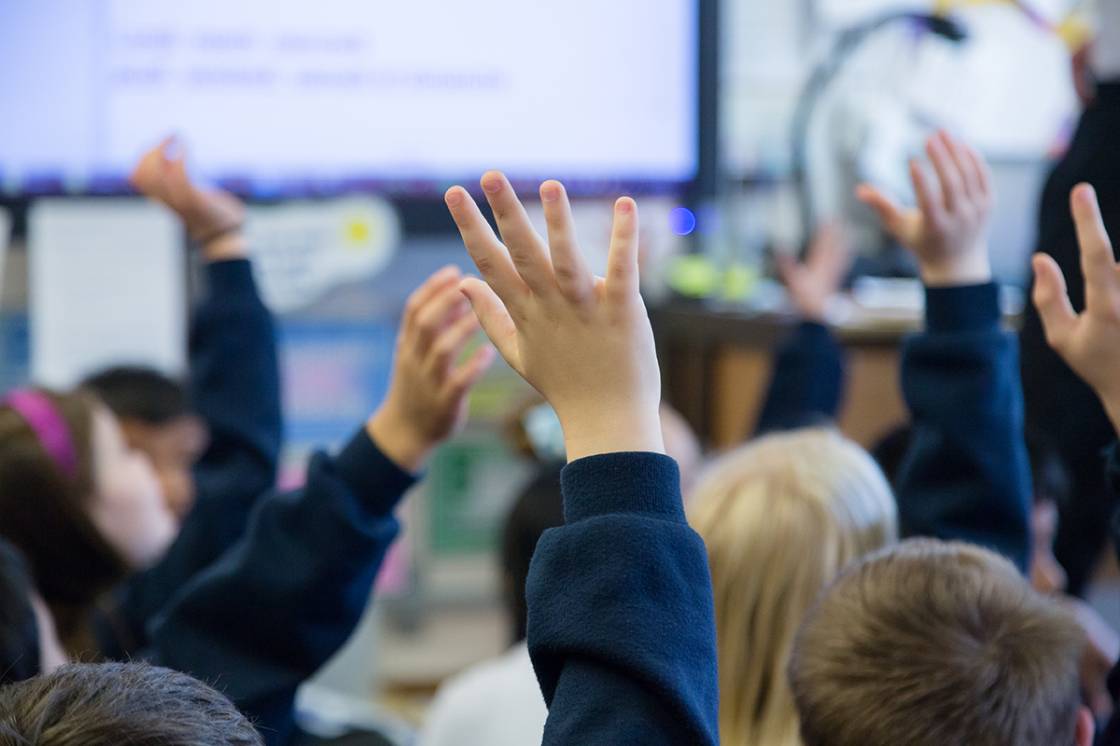
Who teaches this course?
The tutors for your course have experience teaching in schools. They continue to be actively involved in a range of education related activities, such as further study, research and direct work with schools and in educational settings.
Course fees and funding
Additional costs
Depending on the programme of study, there may be extra costs that are not covered by tuition fees which students will need to consider when planning their studies. Tuition fees cover the cost of your teaching, assessment and operating University facilities such as the library, access to shared IT equipment and other support services. Accommodation and living costs are not included in our fees.
Where a course has additional expenses, we make every effort to highlight them. These may include optional field trips, materials (e.g. art, design, engineering), security checks such as DBS, uniforms, specialist clothing or professional memberships.
After you graduate
Graduates become class teachers, subject leaders, headteachers, tutors and members of advisory and inspection teams. Others progress into related fields of education or further study at Kingston University, including NASENCO.
Links with business and industry
We work in partnership with a wide range of schools. This means that you will have the opportunity to experience diverse settings over your three years. These experiences will help you to make more informed choices when you start applying for your first teaching post.
We also work with colleagues from schools, local authorities and other educational fields to develop our course. We create opportunities across the three years for guest speakers to give talks and share their expertise directly with you. These lectures mean you can find out about how things are being done in schools. They also provide insight about educational leadership roles, to help you enhance your career beyond your first year of teaching.
What our students say
Key information set
The scrolling banner(s) below display some key factual data about this course (including different course combinations or delivery modes of this course where relevant).
Course changes and regulations
The information on this page reflects the currently intended course structure and module details. To improve your student experience and the quality of your degree, we may review and change the material information of this course. Course changes explained.
Programme Specifications for the course are published ahead of each academic year.
Regulations governing this course can be found on our website.

